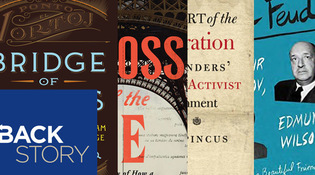 loading
loading
Arts & CultureOutputTo have your book, CD, app, or other work considered for Output, please send a copy to Arts Editor, Yale Alumni Magazine, PO Box 1905, New Haven CT 06509; or e-mail a copy or link to yam@yale.edu.  View full imageThe Index Revolution: Why Investors Should Join It Now Investors love to believe that they, or the high-priced wizards who manage their money, are adept at beating the market. In this slender and contrarian volume, investment guru Ellis details his half-century journey from active stock management to becoming a believer in stock indexing. The strategy “delivers better long-term returns” and is cheaper than active investing. Moreover, its inherent simplicity enables the investor to better “focus on the policy decisions that are so important for . . . long-term investment success.”
The Heart of the Declaration: The Founders’ Case for an Activist Government According to many modern politicians, pundits, and historians, the Founding Fathers were devotees of limited government, and the less the better. But that view, argues Pincus, is a misreading of both the Declaration and history. “Washington and his fellow Patriots on both sides of the Atlantic wanted an energetic government,” he writes: one that not only kept the country safe but also embraced an expansive role in promoting economic development, subsidizing immigration, and helping to bring about equality and the
One Toss of the Dice: The Incredible Story of How a Poem Made Us Modern In 1896, poet Stéphane Mallarmé settled into his summer place in pastoral France to write and to sail on the Seine. What emerged was One Toss of the Dice, an epic poem ostensibly about a shipwreck. Published the following year, it became “the birth certificate of modern poetry,” notes Bloch. He argues that the challenging masterwork, offered in this fascinating book in a new translation by J. D. McClatchy ’74PhD, helped shape all modernism from painting to physics—even the mindset that would result in hypertext and the World Wide Web.
BackStory Since 2008, Ayers has been one of three Virginia professors calling themselves “the American history guys” on this public radio show. They’ll need more gender-inclusive language now that Freeman, a Yale prof who specializes in the Revolution and the early national period, has joined the team. Each episode of BackStory includes several stories from different eras of American history, built around a particular theme—shopping, disability, or the wilderness, to give a few recent examples.
Bridge of Words: Esperanto and the Dream of a Universal Language The Tower of Babel is still in ruins, but it’s not for want of trying: in the nineteenth century, writes Schor, a Polish Jew named Ludovik Lazarus Zamenhof “threw a plank across the abyss” in an effort to help humans “cross the gulfs among ethnicities, religions, and cultures.” Zamenhof’s creation was Esperanto, the would-be universal language. It is not universal yet, though millions, including Schor, have embraced its quixotic attempt at reconnection.
The Feud: Vladimir Nabokov, Edmund Wilson, and the End of a Beautiful Friendship In 1940, the celebrated literary critic Edmund Wilson took a recent Russian émigré novelist, name of Vladimir Nabokov, under his wing. The two writers quickly became “old pals,” writes Beam, in this delicious exploration of the development and dissolution of a famous friendship. At first it “fed on the oxygen of intellectual discourse”—but it was choked off by Wilson’s 1965 “unfailingly amusing hatchet job” on Nabokov’s controversial translation of Pushkin’s classic poem Eugene Onegin.
The comment period has expired.
|
|